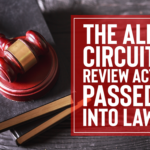The massive banking institution Wells Fargo has found its name in the headlines quite a bit in the past year, mostly due to an allegedly widespread scheme at the bank involving over 5,000 employees to open accounts on behalf of clients without their express approval, resulting in millions of dollars in unnecessary fines for the unsuspecting clients. That scandal led to the removal of the bank’s CEO John Stumpf (who was given a $133.1 million payday to go away), but the bank is facing additional claims of wrongdoing separate from that scandal. In 2016, the Second Circuit dismissed claims against the bank that it had violated the False Claims Act (FCA) in connection with its acquisition of smaller banks, but the US Supreme Court recently reversed that decision and ordered the Second Circuit to reconsider the case in light of the Supreme Court’s 2016 decision in Universal Health Servs., Inc. v. United States ex rel. Escobar.
How Escobar Changes the Way Courts Look at FCA Claims
The FCA claims were brought against Wells Fargo by two executives at banks acquired by Wells Fargo, including one at World Savings Bank and one at Wachovia. Wachovia acquired World Savings Bank in 2006, and Wells Fargo acquired Wachovia in 2008. The executives allege that Wells Fargo falsely indicated to the federal government that it was in compliance with federal banking requirements while taking low-rate loans from the federal government.
The Second Circuit had dismissed the executives’ claims in early 2016 based on the legal reasoning that Wells Fargo’s statements to the federal government in applying for low-rate loans were omissions not directly tied to their FCA claims, ruling the executives “have not plausibly connected those accusations to express or implied false claims submitted to the government for payment, as required to collect the treble damages and other statutory penalties available under the FCA.”
But only a month later in Escobar, the US Supreme Court ruled that certifications made to the federal government that an entity was in compliance with federal regulations and laws could indeed form the basis of an FCA claim, and that defendants in FCA claims might be “liable for violating requirements even if they were not expressly designated as conditions of payment.”
Escobar and the Materiality Standard
That said, the Supreme Court did impose a materiality requirement on all FCA claims brought on this basis, and that “cannot be found where noncompliance is minor or insubstantial.” The court also ruled that, where the government pays despite knowledge of non-compliance, a plaintiff will fail to show materiality. The Second Circuit will reevaluate the Wells Fargo FCA claims in light of Escobar and the materiality requirement.
Work with an Experienced Whistleblower Attorney
Kreindler & Associates is dedicated exclusively to protecting and helping whistleblowers who make the courageous decision to expose fraud. If you are considering making a whistleblower claim or feel that you’ve been the victim of wrongful retaliation for having done so, contact us today. We’re here to answer all of your questions and guide you through the whistleblowing process.




